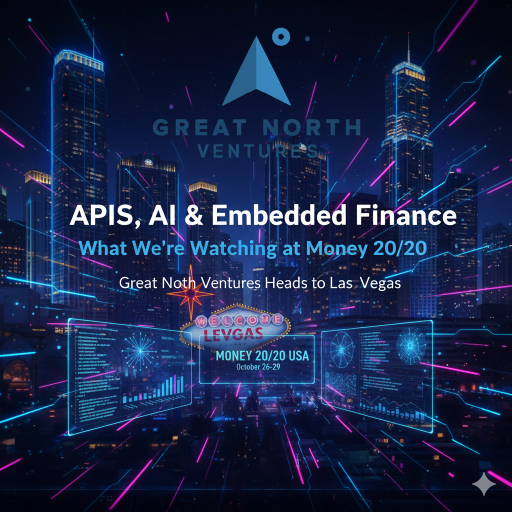Fintech startups are known for slick user experiences, but building them can be a major hurdle. Founders often have to stitch together a web of KYC/KYB systems, underwriting logic, compliance workflows, and loan origination tools — with limited capital and no backend infrastructure.
Some are turning to platform solutions like LendAPI to speed up time to market. The company’s toolkit turns complex builds into turnkey workflows for embedded lending, neobank stacks, healthcare finance, credit-as-a-service and vertical SaaS.
“Fintech founders shouldn’t have to spend years and millions on tech, compliance, or risk infrastructure,” said Tim Li, CEO of LendAPI. “We want to make sure the next generation of fintech startups can get to market quicker, pivot smarter and scale securely.”
From BNPL to legal fee financing to real estate investment onboarding, LendAPI helps fintechs build and launch credit products quickly. The platform supports a wide range of use cases, giving companies the ability to move fast without sacrificing control. One recent example is Rent Now Pay Later (RNPL), a rental underwriting startup that addresses the needs of the credit-invisible.
Offering credit-invisible renters a path to stable housing
Traditional credit systems weren’t built for everyone, especially renters. Millions of Americans can afford rent but lack the paperwork to prove it. RNPL, built on LendAPI’s infrastructure, is transforming rental underwriting to serve the credit-invisible.
Landlords typically rely on credit reports and pay stubs to vet renters, a system that leaves out many freelancers, gig workers, cash earners, or people rebuilding their lives after financial shocks. The Consumer Financial Protection Bureau estimates that as of 2020, 7 million adults had no credit record, and another 25.3 million had files too limited or outdated to generate a score, leaving them largely invisible to screening systems used by landlords and lenders.
RNPL Co-founder Mark Mughabghab set out to solve this problem with Rent Now Pay Later (RNPL), a startup that helps renters get approved for housing through small-dollar loans that cover move-in costs or monthly rent — even if they don’t have a traditional credit history.
“A third of renters are gig or self-employed workers who can’t get approved through traditional credit checks,” said Mughabghab. “We built RNPL to give them a real path into the market.”
Mughabghab set out to develop a way to underwrite renters with thin or no credit, so landlords can feel confident they’re reliable tenants.
Scoring the unscorable
RNPL, which launched nationwide in June, underwrites potential renters by analyzing how they manage their money instead of relying on traditional systems that focus on past debt repayment and can exclude people with steady income.
“The credit bureaus will capture how well you’ve served your debt — credit card, installment loans, whatever that might be — but they never capture how much money you really make,” said Li. “We’re measuring renting power — not just debt history.”
In other words, traditional credit reports look backward, focusing on how someone handled debt in the past. RNPL looks at how people manage income and expenses in real time. Known as cash flow underwriting, it assesses whether someone can afford rent now, not just whether they’ve borrowed responsibly in the past.
RNPL, using LendAPI’s toolset, evaluates renters’ real-time spending behavior — including non-sufficient funds, overdrafts, and income flows.
“We focus more on spending habits versus credit… because your rent is based on your cash flow and your income,” Mughabghab said.
Plug and play infrastructure
RNPL, which was stood up in just a few months, runs on LendAPI’s no-code fintech platform that handles everything from underwriting to compliance workflows. Instead of building a lending stack from scratch, RNPL used LendAPI’s drag-and-drop tools to launch quickly and customize its risk models in real time.
“If you’ve built a fintech before, you’ve probably had to piece together a CRM system, a decision engine, third-party plugins… It can take six to nine months and a team of engineers to get it working,” said Li of LendAPI. “We give companies like RNPL the ability to go live in weeks — and adapt instantly as they learn.”
Runway to expand
RNPL is one example of LendAPI’s reach across industries, with clients that include publicly-traded neobanks, regional banks, point-of-sale financing firms and retailers launching private-label BNPL checkout. Bootstrapped from inception, LendAPI closed a $3.2 million seed round in November 2024 led by Cohen Circle, with participation from Great North Ventures, AlleyCorp and other investors. The funding will accelerate AI development and expansion into new markets.
Companies like LawFi, Enervee and RapidFi have partnered with LendAPI to build and launch lending products tailored to their markets — whether for financing legal retainers, sustainable home upgrades, or out-of-pocket medical costs. Others, like Relli and PonyMoney, use the platform to streamline investor onboarding or iterate on underwriting in real time.
LendAPI has processed more than six million applications and now includes advanced features like AI-powered automation for mortgage and real estate finance. Li compares this level of accessibility to the evolution of website building — from hiring webmasters to using drag-and-drop templates.
“Twenty-five years ago, if you wanted to build a website, you had to hire a webmaster,” said Li. “Today, you just go to GoDaddy, grab a template, and you’re up and running. We’ve brought that same experience to lending.”






